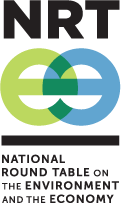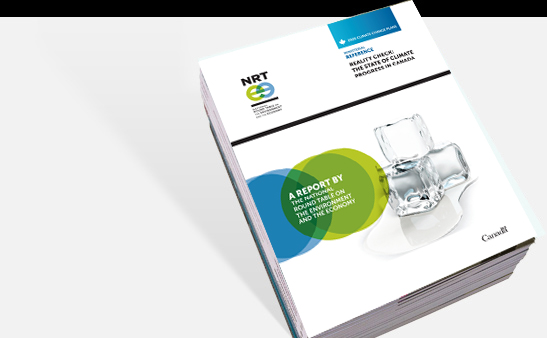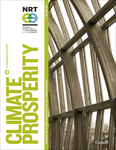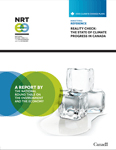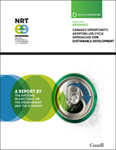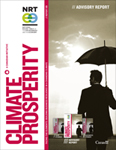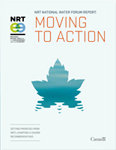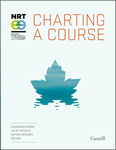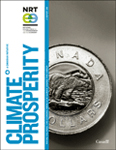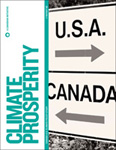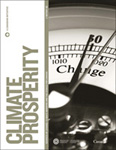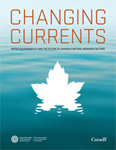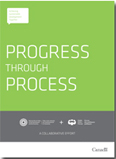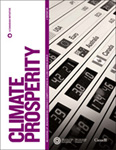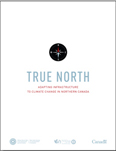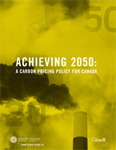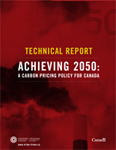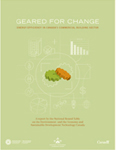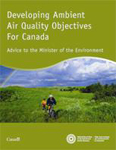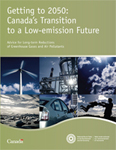Changing Currents: Water Sustainability and the Future of Canada’s Natural Resource Sectors – Research
The NRT is conducting a two-year program on Water Sustainability and the Future of Canada’s Natural Resource Sectors examining the relationship between water and the forestry, mining, agricultural, and energy sectors. The Phase I report, entitled “Changing Currents”, was released in June 2010 and examined principal water uses by Canada’s natural resource sectors and identified key water issues. Phase II, which will be released at the end of 2011, undertook research into the potential solutions to these issues.

In November 2008, the National Round Table on the Environment and the Economy (NRTEE) initiated a research program on Water Sustainability and the Future of Canada’s Natural Resource Sectors (agriculture, forest, mining, and energy) to identify what is known about the main uses of water by the natural resource sectors. The program has two high level objectives:
- To raise the profile of the importance of water management in this country and some of the key water issues relative to Canada’s natural resources sectors; and
- To provide recommendations to governments, industry and water management authorities on policies, approaches and mechanisms through which water can be better managed to foster both ecosystem health and the natural resource sectors’ economic sustainability.
The program is divided into two phases. Phase I (2009–2010) set out to identify key issues related to the sectors’ water uses, as well as the barriers, drivers, risks, and opportunities associated with the sustainability of Canada’s freshwater as they relate to the natural resource sectors. Phase II (2010–2011) will focus on exploring options and proposing solutions to some of the key issues identified in this Phase I report.
Phase 1 (2009–2010)
Phase I of the Water Sustainability program set out to highlight the current and emerging water uses that are important for the sustainability of the water resources and the Canadian economy, and identify critical issues common to one or more of the sectors. Changing Currents: Water Sustainability and the Future of Canada’s Natural Resource Sectors is the result of over a year of research and engagement involving over 150 of the country’s leading experts on water management and policy, and the natural resource sectors.
An initial national expert workshop was held in February, 2009, to help the NRTEE scope out the water program. Based on advice from this meeting, the NRTEE partnered with the natural resource sectors’ industry associations, to hold six roundtable meetings in the fall of 2009 to discuss the key water uses and issues pertaining to their sectors. The focus and approach of the program was guided by the NRTEE’s Expert Advisory Committee.
Phase 2 (2010-2011)
The NRTEE believes that the opportunity is now to put Canada on a policy path to ensure sustainability of our water and natural resource sectors. We must ensure that Canada’s ecosystem services are protected to ensure the long-term health of our natural environment. At the same time, we need to ensure that our natural resources are developed in a sustainably responsible manner, and do not significantly impact upon our natural environments including our water resources. To do so, Canada needs to put in place a national framework for integrated water governance and management and should do so before water availability is constrained. Governments and water users are currently in a position to consider trade-offs of water use as well as future options.
Of the four national issues identified in our research, the NRTEE has decided to further explore the key challenges surrounding governance and water management. Governance at a national level is not currently positioned to respond to expected increasing pressure on our water resources. This is largely due to jurisdictional complexity, inconsistent approaches across the country, policy fragmentation, a lack of resources, and insufficient technical, scientific, and policy capacity. By addressing these specific challenges, governments will be able to establish more effective governance structures that will enable industry to develop solutions at the regional scales where they operate.
In order to provide advice that will assist in the development of a national water framework, the following key issues related to governance and water management will be explored: water allocation schemes, integrated collaborative governance approaches, collection and management of water use data, and policy instruments. In Phase II of the NRTEE’s water program, we will undertake to:
- Evaluate current water allocation approaches across the country to determine if they remain effective and appropriate means of managing water, and identify opportunities for improvement to water allocation going forward.
- Explore collaborative governance approaches for integrated water management.
- Investigate strategic approaches to the collection and management of water-use data.
- Evaluate a full suite of policy instruments for water management in Canada, from traditional regulatory and voluntary conservation efforts to pricing and market-based instruments.
